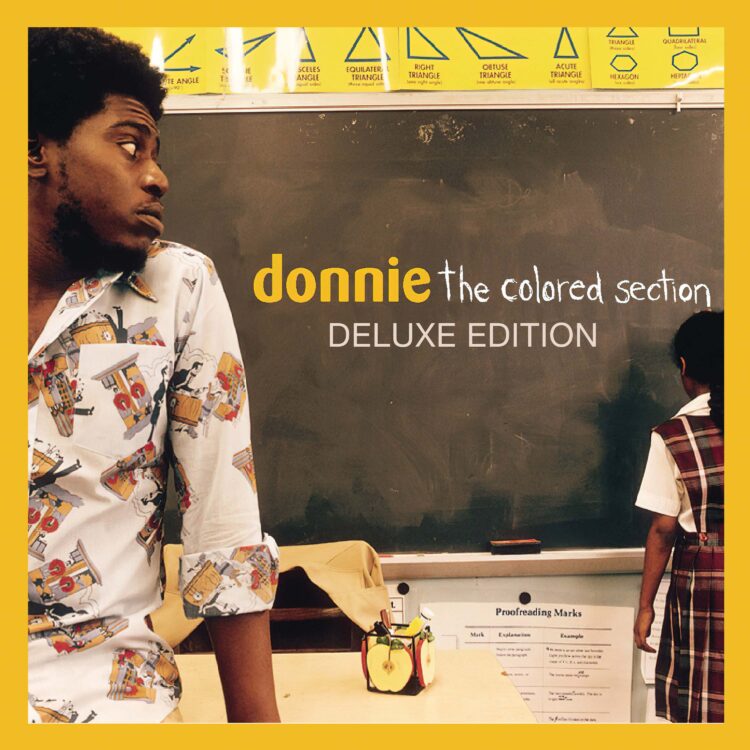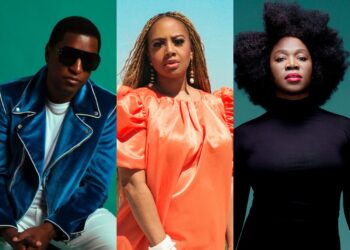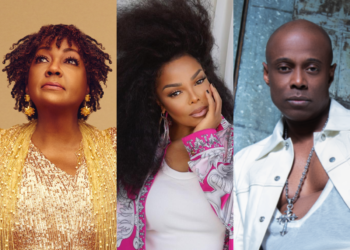One night in 1994, Donnie Johnson, simply known as Donnie, was invited to attend Yin Yang Café, a supper club in Atlanta. During his visit, the Kentucky-born singer performed an original song called “You Got A Friend.” (It later appeared on his debut album, The Colored Section.) He eventually became a regular performer at Yin Yang Café, as the bistro turned into a hotbed for emerging soul artists in the area.
In the late ‘90s, he joined an artist collective and frequently shared the stage with then-budding singer India.Arie. While Arie signed a deal with Motown Records and made her introduction to the masses in 2001 with Acoustic Soul, Donnie’s official debut would follow a couple of years later.
Before signing to a major label, Donnie released his debut album The Colored Section independently via Giant Step Records in 2002. A year later, it was re-released on Motown Records, home to fellow neo-soul singers Arie, Erykah Badu and Kem. Even though the album was released amid the neo-soul movement, Donnie doesn’t necessarily believe his music fits into that box.
“People more so named the genre. I was making music that I really loved. It wasn’t necessarily a decision to be in that genre for me,” Donnie tells Rated R&B over a phone call, a week before The Colored Section is reissued as a deluxe edition with two unheard tracks (“Trois” and “When You Call My Name”) and various remixes.
The extended edition, available now, commemorates the 20th anniversary of the underrated body of work. Donnie believes it’s an opportunity for him to reintroduce his music to a wider audience.
“For the same record company that dropped me to honor me later with a 20th-anniversary, and for it to be coming out around Juneteenth, is just perfect,” Donnie says with a chuckle. “I feel that it’s going to give me another chance to do something, to be visible and to make some type of impact.”
Some may argue that Donnie is soul music’s best-kept secret. The Colored Section is proof, given its modest performance compared to some of Donnie’s contemporaries at the time. The album didn’t sell enough to make it onto the Billboard 200 but it did peak at No. 31 on the Top R&B/Hip-Hop Albums chart. However, those sales figures don’t reflect the quality of the album one bit. The hour-long album is packed with soul-enriching tunes that center around the Black American experience.
In a 2002 interview, he explained that “the colored section is a place that we were restricted to, but now I’m trying to turn it around and make it the hip place to be. I’m making something beautiful out of something that wasn’t so beautiful at one time.”
Donnie says he was heavily inspired by Marvin Gaye’s 1971 classic album, What’s Going On. He wanted to create his version of a concept album that contained socially conscious songs. Since Donnie got his start in the church, there are nuances of gospel embedded in some of the production and his vocal arrangements. Speaking of vocals, it’s evident that music icons like Donnie Hathaway and Stevie Wonder inspired him.
The Colored Section was unapologetically created for the Black community. On the album’s opener, “Welcome to the Colored Section,” Donnie lets it be known that listeners are in for a mini-history lesson. “Sign your name on the black list and know this / It’s American history / See what it is to be blackmailed / See a real live conspiracy.”
He goes on to sing about the importance of embracing Black features that have historically been ridiculed (“Beautiful Me”), including natural Black hair (“Cloud 9”). He also sounds off about consumerism in the Black community (“Big Black Buck”).
On “Wildlife,” Donnie calls out the hypocrisy in anti-Blackness. Though he spends a great deal of time enlightening Black people, Donnie also makes space to inspire with Black love (“Heaven Sent”) — and it’s not necessarily from a heteronormative perspective. He comes up with a “Masterplan” to go after the man of his dreams. “I’m telling you I got a masterplan / I’m gonna get you boy / Make you my man,” he sings.
In our conversation with Donnie, he reflects on The Colored Section 20 years later and opens up about select songs on the album.
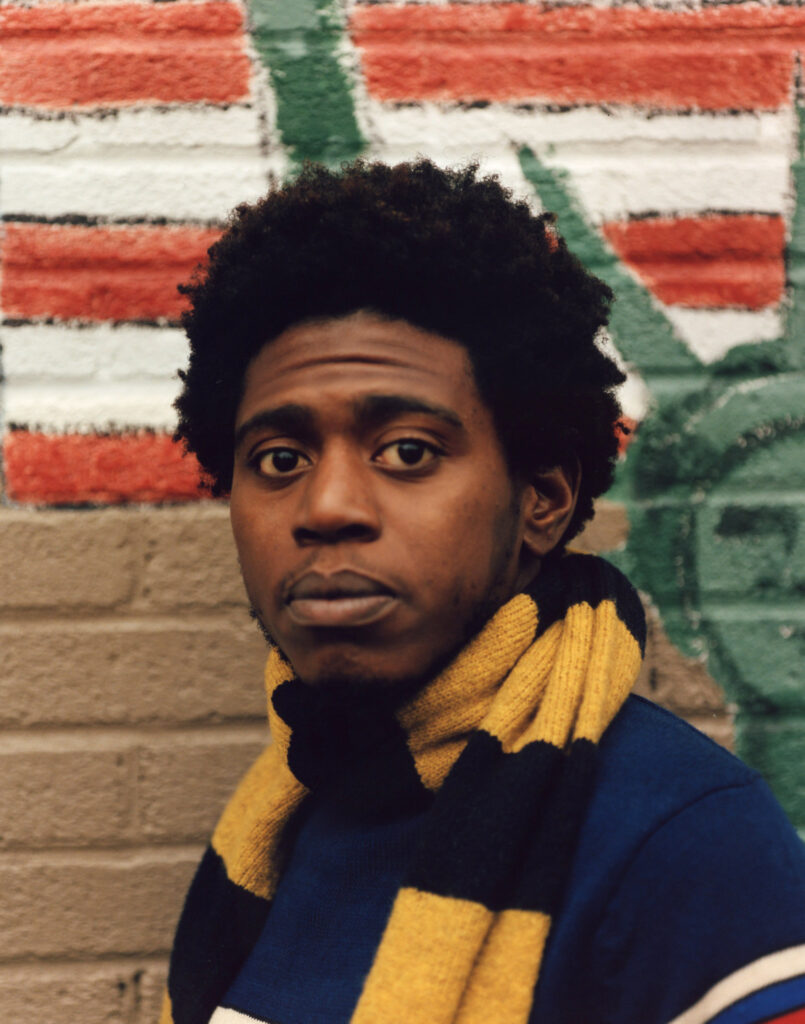
The first full song on the album is “Beautiful Me,” an empowering song about embracing your Blackness. What inspired you to write it?
It was really more so just an inspiration. My friend Mel Johnson produced a track and I was writing something to it. Honestly, it came naturally like a hip-hop artist doing freestyle. It just came to mind when I was writing it. I mean, it was already here — the subject matter. Look at how many generations have gone before us telling us to be Black and proud. And all the little girls that were playing hopscotch and hand games — head, shoulders, knees, and toes. It’s inspired by something, but you don’t realize it until after you make it.
Black hair has historically been ridiculed and even politicized. A song like “Cloud 9” is important because it reminds us that our hair is beautiful the way it is. In the song, you metaphorically use a cloud to describe an afro. When did you learn to embrace your hair as a Black man?
I didn’t really embrace culture like I did until [the late ‘90s] — those years at the Yin Yang when everybody’s walking around with locs and all different types of natural hairstyles. It was very influential on me. Even though my hair was natural before then, it still inspired me to love [it]. I’d never heard of nine ether hair. There’s a lot of stuff that I learned in that time.
“Trois” is a new track that appears on the deluxe edition. Can you speak more on that song and what moved you to include it on the reissue?
It was no decision of mine. It was totally Universal Motown’s decision because they own the tracks. There’s certain things that I recorded while I was recording The Colored Section. “Trois” was made for the movie soundtrack because I wanted to see if it would make it on there. There’s also a love song on it called “When You Call My Name.”
One thing to appreciate about this re-release is the timeliness right before Juneteenth. Even 20 years later, the songs on the album still apply to some issues we’re still dealing with today. How do you feel about that?
It doesn’t make any sense that these types of subjects are still being talked about but when you understand America, you understand that’s what it’s built on. It’s sad to say, but it’s built on hate and discrimination. Somebody don’t want to change and it’s really nerve-racking. It gets on my nerves, but I’m not leaving America because my family is here. I’m going to stay, so I might as well just fight and not give up.
On the title track, you state that “Black history is American history.” Why was that important for you to include?
It’s a dedication to Black people and a song to America to say, “Look at reality. Look at everything that is American. It’s not just Black history, this is American history. My mindset when writing that song was just that. First of all, it’s for Black people. Since I’m from the south, you see old color section signs that you find in junkyards and different places. I look at it like this, if you’re going to shut me out, then this world that I have that you’re basically don’t want to come into, except when you want to steal some culture, no you’re not going to mess this up. This is ours. Now, if you want to come in here, you’re gonna have to be of color and not white because you’re not a blank piece of paper. Ain’t no white people. That’s where I am. It was dedicated to Black people. Saying it’s American history was probably the line that I really wanted them to see. Black history? It’s American history. We’re Americans. Until we’re seen as American — why are white people Americans? They’re going to have to stop that.
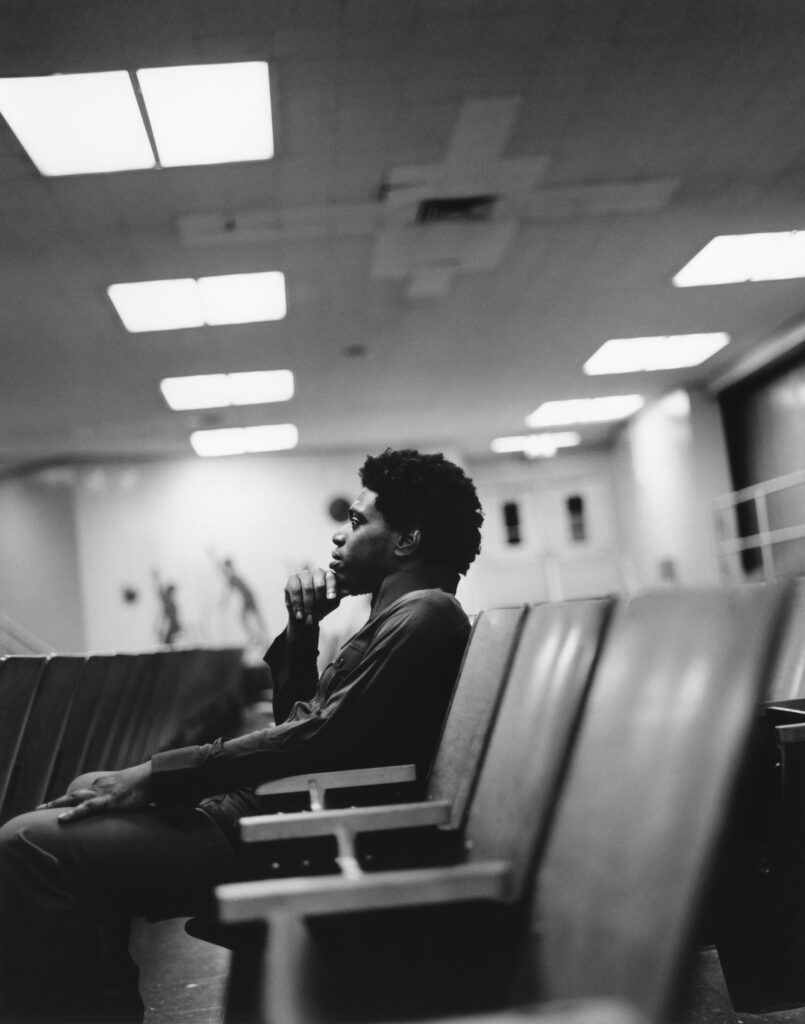
You sing about consumerism on “Big Black Buck.” What was going through your mind when you were writing that song?
We want to be accepted. I think that’s what it is. Instead of concentrating on our fabulous selves, we want somebody to accept what is fabulous. Sometimes you have to do some of that stuff in silence because you know you have an enemy. You ain’t gotta always be like, “Hey, I’m so rich. I’m so proud.” Just do it. That’s one thing that’s wrong with Black people. We’re always trying to show our self-esteem and how proud we are.
The Colored Section is a hidden gem in the neo-soul genre. The album was reissued on the iconic Motown Records. What do you think attributed to its performance?
I just think it didn’t fit. It wasn’t as superficial. It didn’t sound as modern. I believe that it could have done better on the independent label. Giant Step had done promotions for major labels so they knew how to promote. They made me very visible. They were willing to do it when Motown wasn’t. I believe this time [with the deluxe edition], it will be much more visible. There’s just certain things that are happening that were not like [that] when I was first making it. I’m not signed to a contract, but I have some type of say in different things. They don’t own me. They own the masters. Like they say in Dreamgirls, “a star is a slave,” so I’m glad to not be under contract.
Any final thoughts on The Colored Section or the deluxe edition?
I just want people to know that there’s still hope. I’ve had women walking up to me and telling me they shaved their head off after they heard a “Cloud 9.” I’m like, “Whoa!” I want more of that. I want more people being affected positively. It’ll reach a lot more people. I’m grateful and honored very much.
Besides the deluxe edition, is there anything else we can look forward to music-wise?
I’ve been working on this project for a long time and it’s grown in many different directions. The American Mythology is the project that I’m working on. It’s a vision album but it’s also a musical. I’m working with some of my friends from theater and really getting the tips because they know exactly what to do.
Stream The Colored Section (Deluxe Edition) by Donnie below.


